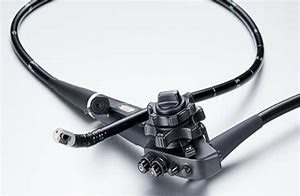 Pentax Medical recently issued an urgent recall of one of its duodenoscope models. Pentax is informing customers of its voluntary recall of all ED-3490TK duodenoscopes. As part of the recall, Pentax aims to replace the forceps elevator mechanism, O-ring seal and distal end cap. There will also be an update issued to the Operation Manual that recommends annual maintenance. Ultimately, Pentax hopes to reduce the potential for leakage of patient fluids into the closed elevator channel and under the distal cap. The US Food and Drug Administration (FDA) cleared the updated design and labeling for the ED-3490TK on February 7, 2018. Per the FDA, the reprocessing instructions for the duodenoscope model have not changed since the February 2016 update.
Pentax Medical recently issued an urgent recall of one of its duodenoscope models. Pentax is informing customers of its voluntary recall of all ED-3490TK duodenoscopes. As part of the recall, Pentax aims to replace the forceps elevator mechanism, O-ring seal and distal end cap. There will also be an update issued to the Operation Manual that recommends annual maintenance. Ultimately, Pentax hopes to reduce the potential for leakage of patient fluids into the closed elevator channel and under the distal cap. The US Food and Drug Administration (FDA) cleared the updated design and labeling for the ED-3490TK on February 7, 2018. Per the FDA, the reprocessing instructions for the duodenoscope model have not changed since the February 2016 update.
As this article by Elaine Silvestrini at Drugwatch further explains:
“The scopes are used in endoscopic procedures, and models by several companies have posed problems for cleaning between procedures. Doctors use the scopes to place small cameras inside patients and perform minimally invasive surgeries and tests. They can be used for things like gallstones, pancreatitis and draining bile ducts.
Design Makes Scopes Hard to Clean
Their complicated design may make it difficult to thoroughly clean and sterilize them of patient fluids and organisms between procedures.
Scopes made by Olympus have been implicated in a superbug outbreak, and scopes made by Fujifilm have been removed from the market altogether.
The latest Pentax recall involves the ED-3490TK duodenoscope, which has been linked to risk of spreading bacterial infections.
Last year, Pentax reported that the scope involved in the newest recall had design flaws that could lead to infection in patients. The cleaning instructions for the scopes had previously been updated in February 2016.”
Read the entire notice here: Pentax Issues Urgent Recall of Duodenoscopes for Bug Fixes
The infection risk with duodenoscopes across all the major scope manufacturers continues to be an issue for hospitals. Hospitals must continue to be vigilant in their use of duodeonscopes and must ensure processes are followed strictly to minimize infection risk. Where strong processes are missing, hospitals must work to ensure the proper people and systems are in place to upgrade processes to the highest standards. Software systems such as iRIScope have been introduced in recent years to help hospitals ensure that each of their flexible endoscopes is reprocessed the proper way each time, and documentation of their reprocessing is kept electronically using advanced RFID technology.
